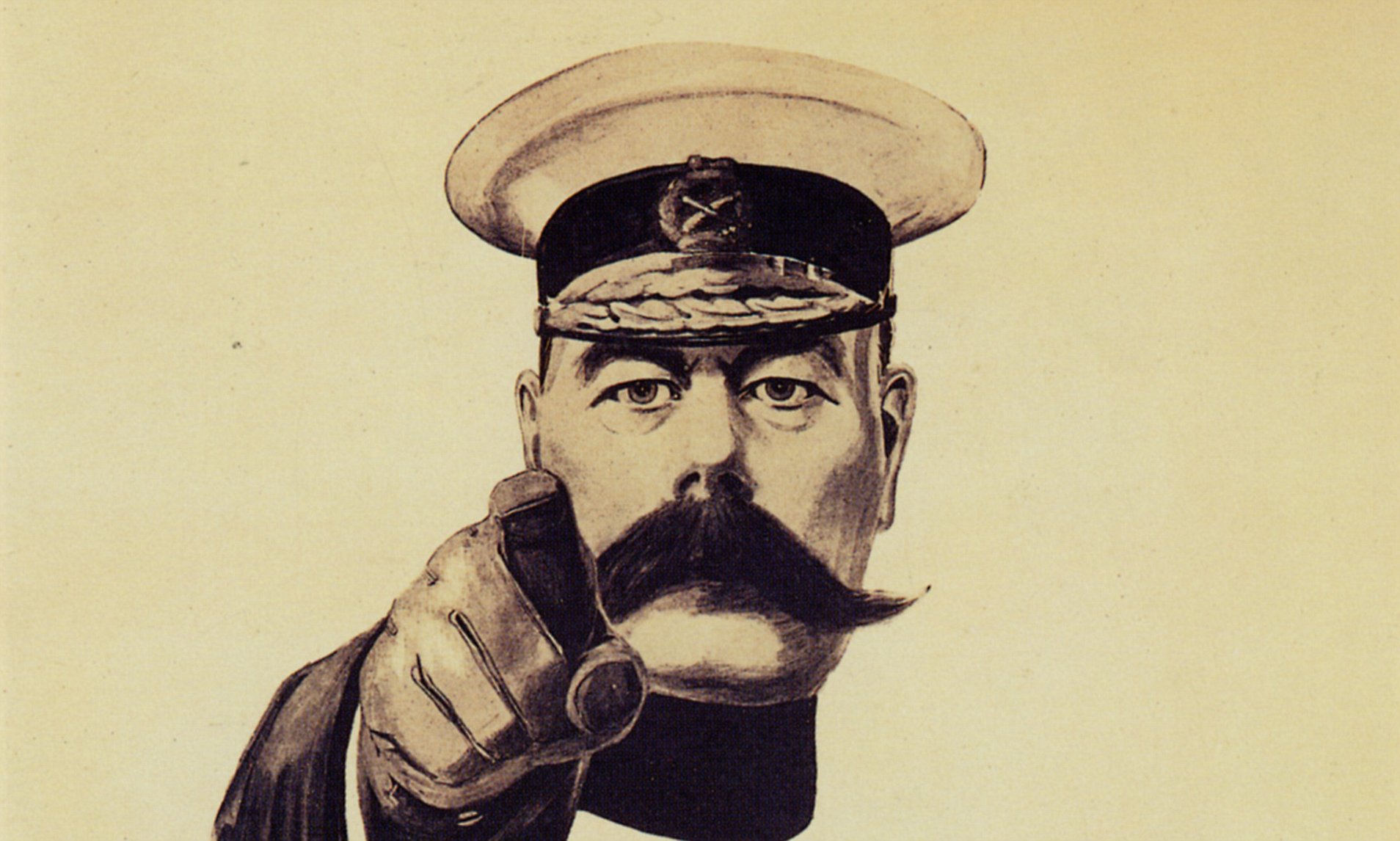British army officer, the First Designer of the Middle East: Who is Horatio Herbert Kitchener?
Kitchener was a British military leader and statesman who, as secretary of state in the early years of the First World War, organized the army on an unprecedented scale. He was also depicted on the most famous British army recruitment poster ever produced.

He was the child of a Protestant family. He was educated privately. He graduated from Wowlwich Kingdom Military Academy. He fought voluntarily on the side of the French in the French-German wars. He started working as a civil servant in January 1871. He worked in the secret service in Palestine, Anatolia, and Cyprus between 1874 and 1882.
He was assigned to an Egyptian cavalry unit in Cairo in early 1883. He participated in the operation to rescue General C G Gordon in the Nile. After the operation failed, he went to Zanzibar. He was governor-general in Suakin on the Red Sea coast. On the recommendation of Prime Minister Lord Salisbury, he became commander-in-chief of the Egyptian army.
Field Marshal Horatio Herbert Kitchener, 1st Earl Kitchener (24 June 1850 – 5 June 1916) was a British Army officer and colonial administrator. Kitchener came to prominence for his imperial campaigns, his involvement in the Second Boer War, and his central role in the early part of the First World War.
Kitchener never married, thinking only of his duty. Kitchener and his friends started the war in 1896; On September 2, 1898, they organized a large massacre against Arabs from Omdurman. The victory of brutality filled England with excitement. Kitchener was given the title of nobility in November 1898 and a large sum of money in June 1899, with the thanks of parliament.
Another success of Kitchener was his skillful analysis of the situation that arose when a French unit in Fashoda (Kodok) claimed rights over parts of Sudan. Kitchener remained in Sudan as governor-general for a year. Meanwhile, war broke out in South Africa. In order to correct the deteriorating situation, Kitchener was sent to South Africa with Lord Roberts in 1899, where he replaced Roberts as commander-in-chief and broke the guerrilla resistance, which lasted approximately two years, with brutal methods.
Fields were set on fire, and women and children were imprisoned in concentration camps where epidemics were rampant. Finally, the Boers came to their knees. When Kitchener returned to England in July 1902, he received medals of honor and was also elevated to the rank of viscount. When he refused to work at the Ministry of War, he was sent to India as commander-in-chief. Here he reorganized the army not to suppress an internal rebellion but to counter an attack from outside.
However, he had a falling out with the governor general because of the dual commander system that emerged in the Indian army. Kitchener defended the view that the commander-in-chief, not the governor-general, should have higher authority in military matters. The governor-general resigned after the British cabinet retained Kitchener. Kitchener, who stayed there until September 1909, went to Australia and New Zealand the same year to give advice on defense policy.
Perhaps the greatest disappointment of his life was that Asquith's liberal government was unwilling to make him governor-general of India, but he found consolation when he was offered the governorship of Egypt. He was in Cairo between 1911-1914 and ruled Egypt and Sudan. In July 1914, Kitchener reluctantly accepted an assignment from Prime Minister Asquith. Accordingly, he would enter the cabinet as a field marshal and become a neutral minister of war.
Kitchener found the British army small and told his colleagues, who believed that the war would end in three weeks and that the war would last at least three years. According to Kitchener, England would need an army of one million more to win the war. Kitchener was a true leader in the first months of the war, representing the people's passion for victory. He established new unions, granted some privileges to these unions, and ensured that the country's industry turned into a war industry.
Kitchener's mistake was that he did not like group work and sharing authority. He was constantly under conflicting pressures, making it difficult for him to make appropriate and effective decisions. In May 1915, he was stripped of his industrial powers.
Kitchener's willingness to go to Gallipoli in November to make recommendations for evacuation gave all his colleagues a sigh of relief. During his absence, he was stripped of all authority over strategy. It was only his love of duty that prevented Kitchener from resigning. He had to not shake the people's trust in the cabinet and try to prevent the cabinet from falling. He wavered between the admiration of the public and the indifference of his friends in the cabinet, and this situation led him to depression.
By late 1915, Kitchener was convinced that it was time to recruit by lot, but Asquith argued that this was still politically impossible, so Kitchener had to remain silent. He went to Russia on an assignment in June 1916. On 5 June 1916, the cruiser Hampshire sank after hitting a German mine off the coast of Orkney. Kitchener drowned to death.
